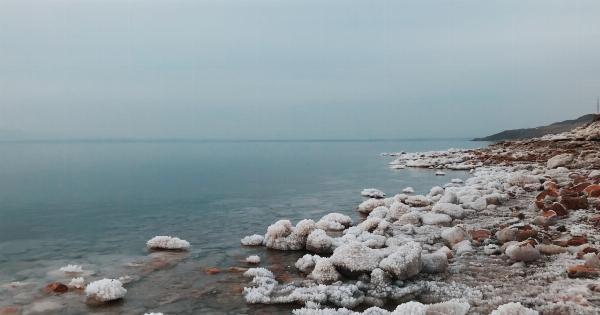Salt is one of the most commonly used seasonings in the world. It has been used for centuries to enhance the flavour of food and preserve it. Salt is an essential part of our diet as it helps maintain the balance of electrolyte in our body.
However, excessive consumption of salt can lead to a number of harmful effects on your health.
What is Salt?
Salt, chemically known as sodium chloride (NaCl), is a crystalline mineral made up of two elements: sodium and chloride. It’s found naturally in ocean water and has been mined from salt deposits for millennia.
Salt is essential to life as it helps regulate the body’s fluid balance, nerve and muscle function, and blood pressure.
How Much Salt is Too Much?
The recommended daily intake of salt is 2,300 mg (about one teaspoon of salt) per day for adults. However, the average daily intake of salt in the United States is around 3,400 mg.
This excessive salt intake can increase the risk of a number of health problems.
Harmful Effects of Excessive Salt
1. High Blood Pressure
Excessive salt consumption is the leading cause of high blood pressure, also known as hypertension. High blood pressure can lead to heart disease, stroke, and kidney disease.
Studies have shown that reducing salt intake can lower blood pressure and reduce the risk of heart disease and stroke.
2. Osteoporosis
Excessive salt intake can lead to calcium loss from bones, which can increase the risk of osteoporosis (a disease that weakens bones and makes them more susceptible to fractures).
3. Kidney Damage
High salt intake can put a strain on the kidneys, which may lead to kidney damage over time. In addition, excessive salt consumption can cause kidney stones, which are painful and can lead to complications.
4. Stomach Cancer
Studies have linked excessive salt consumption to an increased risk of stomach cancer.
This is thought to be because high salt intake can damage the stomach lining and increase the risk of infection with Helicobacter pylori (a bacterium that can cause stomach ulcers and cancer).
5. Water Retention
Excessive salt intake can cause the body to retain water, which can lead to bloating and weight gain. This can be especially problematic for people with heart or kidney disease.
How to Reduce Salt Intake
Reducing salt intake can be challenging, as salt is present in many foods and restaurant meals. However, there are ways to reduce salt intake without sacrificing flavor:.
1. Use Herbs and Spices
Instead of salt, try using herbs and spices to add flavor to your food. You can use fresh or dried herbs, such as basil, thyme, sage, oregano, and rosemary, or spices such as cumin, coriander, chili powder, and turmeric.
These add flavor without the excess salt.
2. Cook From Scratch
When you prepare your own meals at home, you have control over the amount of salt you add. Use fresh ingredients and avoid processed foods, which are often high in salt.
3. Read Labels
When shopping for food, read the labels and choose products with less salt. Look for low-sodium varieties of soups, sauces, and other packaged foods. Also, look for foods that are labeled as “salt-free” or “no added salt”.
4. Be Careful When Eating Out
When eating out at restaurants, ask for your meals without salt or with less salt. Choose options like grilled or roasted meats instead of fried foods, which are often salted.
5. Choose Low-Sodium Alternatives
Choose low-sodium alternatives for common condiments like ketchup, mustard, and salad dressing. Also, try using vinegar or lemon juice as a substitute for salt.
The Bottom Line
Salt is an essential nutrient, but excessive salt intake can lead to a number of harmful effects on your health.
To reduce salt intake, try using herbs and spices instead of salt, cooking from scratch, reading labels, being careful when eating out, and choosing low-sodium alternatives.




























